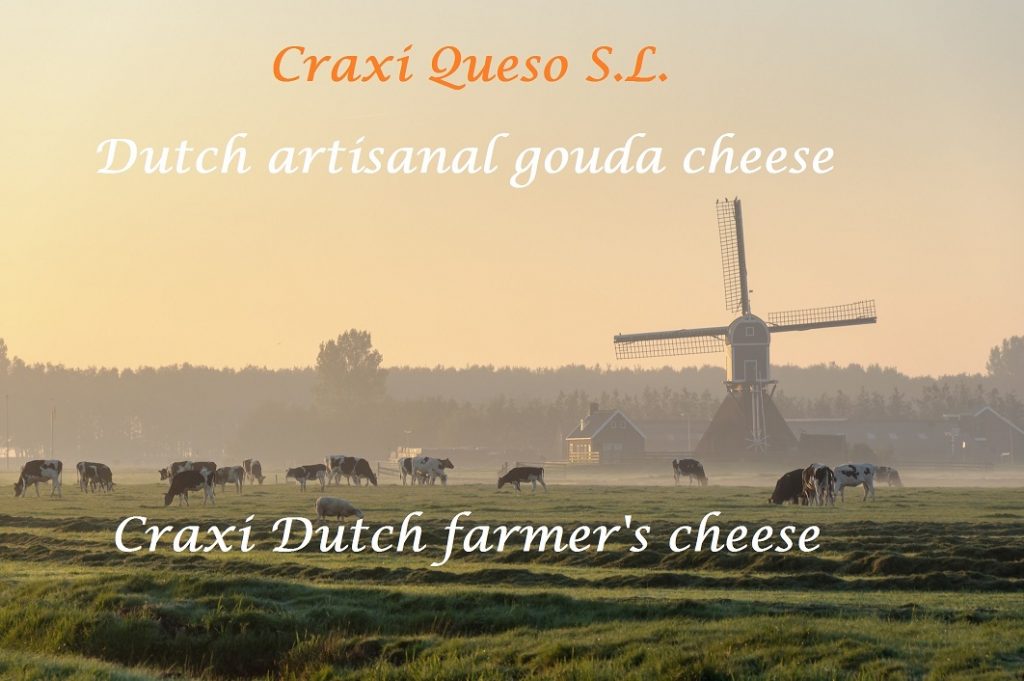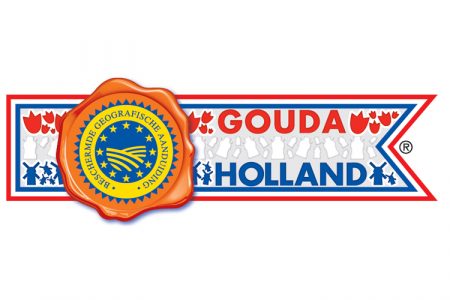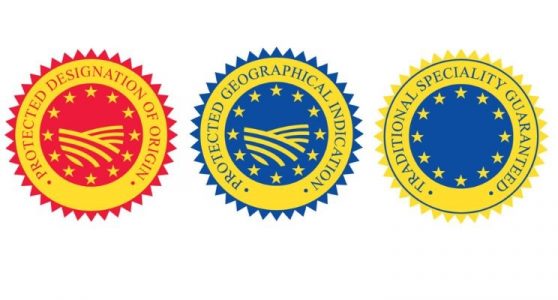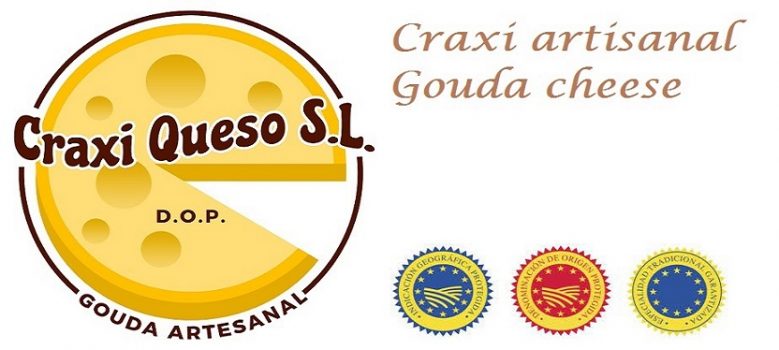Craxi artisan Gouda cheese (PDO)

How to recognise real Dutch Gouda cheese?
The history of Gouda cheese is very interesting. This popular cheese is the third most consumed cheese in the world.
In the Netherlands, 650 million kilos of Gouda cheese are produced every year. Most of it is produced industrially from pasteurised milk, but there are still 280 farmers throughout the country who produce farmhouse cheese from raw milk.
Overview of the most consumed cheeses in the world.
- Mozzarella.
- Parmesan.
- Gouda.
- Cheddar.
There is no country in the world where people don’t know Gouda cheese. In fact, it is so well known that most people don’t even know that Gouda is a town in the Netherlands. Gouda has become a brand name.
In the town of Gouda in the Netherlands, there have been cheese markets since the beginning of the 14th century. The raison d’être of this market was that dairy farming was the main livelihood.
The name Gouda of this delicious cheese is named after the town where this Dutch gold was traded. Gouda was the centre of the cheese trade; buying, selling, and exporting took place mainly in this town. The name Gouda cheese soon became popular and has remained so ever since.
“Gouda” is not a protected name.
Are you under the impression that when you buy Gouda, for example, in the supermarket, it comes from the Netherlands and is made from milk from Dutch cows? Then you should know that “Gouda” is not a protected name.
Gouda is produced on a large scale in factories all over the world, with great differences in quality and taste, from Japan to Poland.
How do you know you are buying Dutch (factory) gouda cheese?
The Netherlands has become big in cheese production. When this cheese was consumed all over the world, many countries came up with the idea of copying it.
This was often successful. The result was a huge load of fake Gouda that flooded the markets. One of lower quality than the other.
In 2010, legislation was passed that restricted this to some extent. The product was given a protected geographical indication.
This means that the name “Gouda Holland” is protected. If you buy cheese with this designation, the milk comes from the Netherlands and the cheese is produced and matured in the Netherlands.
Today, Gouda Holland bears the logo of the European Union, tulips, milk jugs, and windmills. This makes it even clearer that this is an original cheese. So the next time you select a cheese, look carefully for this logo. Only then can you be sure it’s really made in the Netherlands.

Gouda cheese comes in all shapes and sizes. One of the requirements is that it must not weigh more than 16 kilograms. The best-known version is, of course, a round cheese. In professional terms, this is called a cheese “wheel”. But there are also rectangular cheeses and square blocks, which is called hotel block in professional terms. The perfect rectangular slices of cheese that you buy in the supermarket are a good example of this.
How do you know you are buying Dutch artisanal gouda cheese?

- Protected Designation of Origin (PDO)
- Protected Geographical Indication (PGI)
- Traditional Specialities Guaranteed (TSG)
Craxi artisan farm cheese is a cheese that is actually made at a cheese farm in the Netherlands in a traditional, artisanal way. The cheesemaker uses fresh raw milk, directly from the cows. This milk is not heat-treated, as is the case with factory-made cheese. The bacteria still present in this “raw” milk give farmhouse cheese its characteristic and powerful flavour.
Farmer’s cheese never tastes exactly the same. This is because it is a pure natural product. Differences in the feed, the type of soil, the grass, the recipe, and the method of preparation result in the variation in taste.
Artisan Dutch farm Gouda is a traditional and authentic product. It is prepared in the traditional way. To a large extent, this is still done by hand. The farmers work with dedication and feeling for the cheese, but with respect for modern hygiene standards.
The difference in salt content between factory-made and artisanal gouda.
Factory cheese remains longer in the brine bath than artisan farm cheese. As a result, factory cheese loses more moisture and becomes saltier. A normal factory cheese has a salt content of approximately 3.5%. A factory cheese with “25% less salt” has a salt content of approximately 2.5%. Artisan farm cheese has a salt content of approximately 2%.
Do you have a diet that does not allow salt?
At the cheese farm in the Netherlands, we also make unsalted cheese in the traditional way. This cheese does not go through the brine bath and therefore does not absorb the salt. As this unsalted cheese is made from raw milk, it still has a lot of flavour.
We make this unsalted cheese in small “kilo” cheeses as natural and with herbs on request. If you are interested in unsalted cheese, please let us know.

If you have any questions, please contact us via the contact form on the website.
Craxi Dutch artisanal cheese shop.
Are you curious and do you want to experience the taste of real authentic Dutch farm cheese?
Our Dutch farm cheeses are available in our Craxi cheese shop. Address Mercado de la Merced, Stall 14, Calle Merced, 4, 29012 Malaga, Spain.
Find us on Facebook.